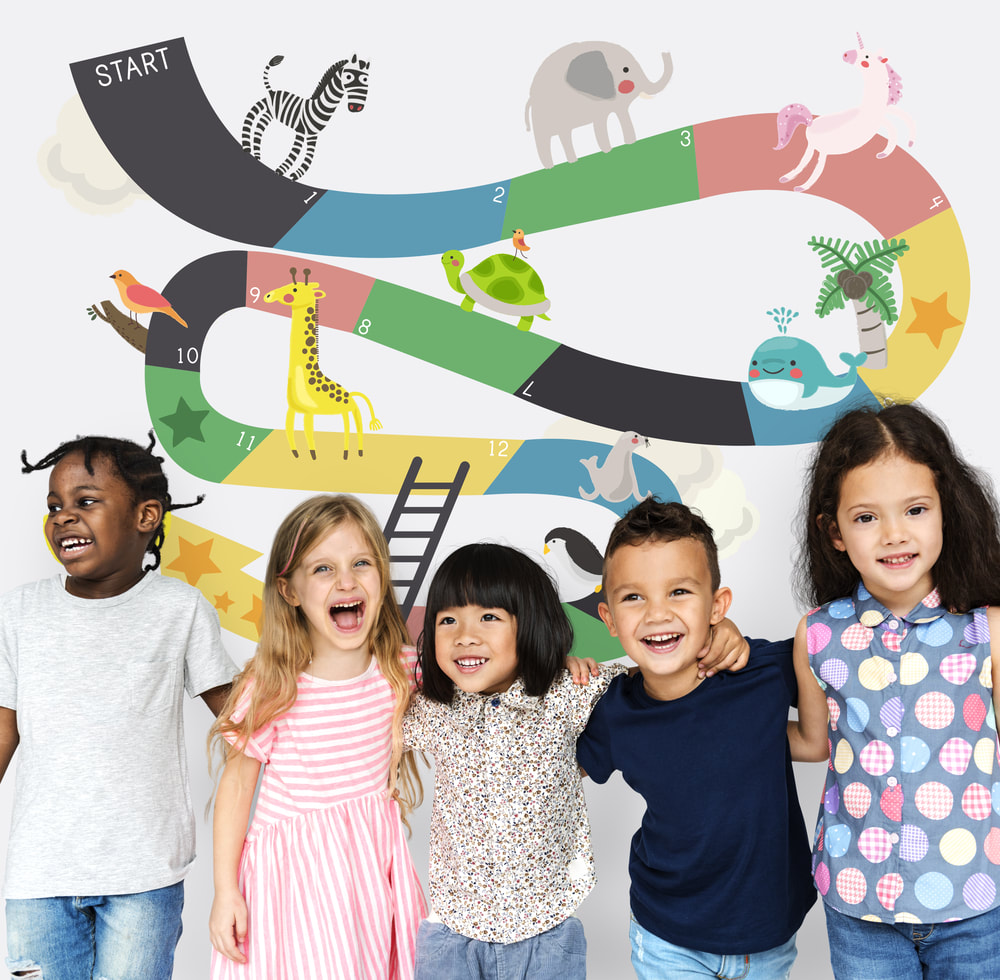|
Daniela Jensen, Psychologist Child psychologists often use games in therapy with young children and teens due to their appeal to young people. Games are a fun and age-appropriate way to engage your child in an activity and provide lots of ‘accidental’ opportunities for your child to communicate their thoughts, feelings, fears and worries to you in a non-threatening and indirect way. As such, even the most fundamental games can facilitate your child’s social skills and emotional development. While there are many games that psychologists and therapists use that are designed specifically to assist children with their symptoms of anxiety, anger, impulsivity, to name a few, it is not necessary to purchase expensive games to encourage your child to talk to you about their difficulties. Inexpensive family games such as Jenga or Snakes and Ladders can be very helpful to parents who want to help their child express their thoughts and emotions in a natural setting. Jenga is a versatile and fun game for children of all ages. It can be easily adapted to any topic that you, as a parent, would like to talk about with your child. To make it even less obvious, you can include other family members to take part in the activity. To a child who, for example worries about sleeping in their room by themselves or not finishing their work in time, it is helpful to know that their siblings and/or parents also have their own worries. If using Jenga, I tend to draw a different number on about half of the Jenga blocks. Before you start playing, you would need to create a list of questions or statements related to the topic you would want to explore or talk about with your child. For example, you may choose to focus on social strengths and weaknesses, difficult feelings, self-esteem or changing family circumstances. As each player takes their turn and picks up a block, you can read the corresponding numbered question (e.g. name three things you are good at for self-esteem, or I worry when if related to anxiety) or statement to your child and your child can think about their response. Snakes and Ladders can also be used in a similar way and adapted depending on the age and needs of your child. I sometimes use a couple of small jars with a list of questions or statements in addition to the board. For younger children, you can use stepping on a ladder as a prompt to pick a paper from the ‘ladder’ jar. You can choose to divide the questions/statements in the two jars on a range of topics. These can include thoughts/feelings, positive/challenging situations or even worries/coping strategies. For older children, you can use stepping on each numbered section as a prompt to refer to a personalised and numbered list of statements that you would have created beforehand. You may find that by modifying these games slightly, all players will have lots of opportunities to express difficult emotions or thoughts, problem solve, reinforce good behaviour and facilitate positive interactions.
Comments are closed.
|
Categories
All
|
Hopscotch & HarmonyAt Hopscotch & Harmony Psychology, you can expect compassionate care and evidence-based guidance on your journey to wellness.
With clinics in Werribee and Belmont, as well as providing online counselling to clients who live throughout Australia, our dedicated team of psychologists and dietitians are committed to providing support to children, teenagers and adults. With a focus on understanding your unique needs, we offer tailored solutions to foster growth and resilience. Trust in our experience and dedication as we work together towards your well-being. Welcome to a place where healing begins and possibilities abound. |
Our services |
Contact usHopscotch & Harmony
Child, Teen and Adult Psychology Our Locations:
WERRIBEE: 1/167-179 Shaws Rd
BELMONT: 92 Roslyn Rd AUSTRALIA-WIDE: Online counselling |
Hopscotch and Harmony respectfully recognise the Aboriginal and Torres Strait Islander people as the first Peoples of the continent now called Australia.
We acknowledge the Bunurong and Wadawurrung people of the Kulin Nation, the traditional owners of the land on which we work, and pay our respects to their Elders, past, present and emerging.
© 2024 Hopscotch and Harmony Pty Ltd



 RSS Feed
RSS Feed
